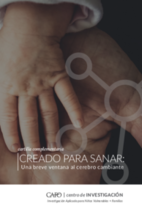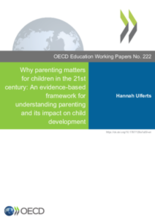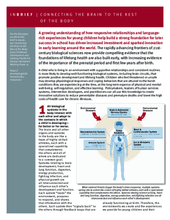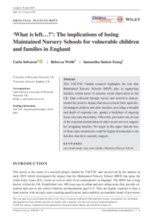Displaying 51 - 60 of 496
Este documento explora la neuroplasticidad y niños vulnerables.
The aim of the present study was to investigate cognitive functioning at age 8 years among 39 foster children (FC) compared to 36 children in a non-foster comparison group (NFC).
In the present paper, the Ecological Systems Theory is used to depict different vulnerabilities associated with orphanhood in the Ghanaian context.
In this commentary piece, Aisha K Yousafzai - of the Department of Global Health and Population at the Harvard TH Chan School of Public Health and the and Department of Paediatrics and Child Health at Aga Khan University - notes that "the evidence presented [in the Lancet Group Commission on the institutionalisation and deinstitutionalisation of children] and their call to action to ensure abandoned children can thrive in family-based care environments rather than in institutions matters now more than ever as the global community addresses unprecedented challenges to ensure a generation of children are not left behind with respect to their survival, health, development, learning, and safety."
In this episode of the Protected! Podcast, Hani Mansourian and Joan Lombardi - director of Early Opportunities - talk about how responsive care and early childhood experiences shape a child’s development and future wellbeing within families and communities.
This webinar includes presentations from panelists in Latin America discussing early childhood programming in the region, particularly in light of the COVID-19 pandemic.
This paper provides a structured overview of the existing parenting literature with the aim of developing an evidence-based and culture-sensitive framework of parenting and its influence on child development.
This brief describes some of the "compelling evidence that the foundations of lifelong health" are built in the early years of life, "with increasing evidence of the importance of the prenatal period and first few years after birth."
The first aim of this study was to examine differences in the socio-emotional functioning of adopted and institution-reared children in Chile. The second aim of this study was to examine the influence of adoption related variables on the psychological adjustment of adopted children.
This TACTYC funded research highlights the role that Maintained Nursery Schools (MNS) play in supporting families within areas of extreme social deprivation in the UK.




